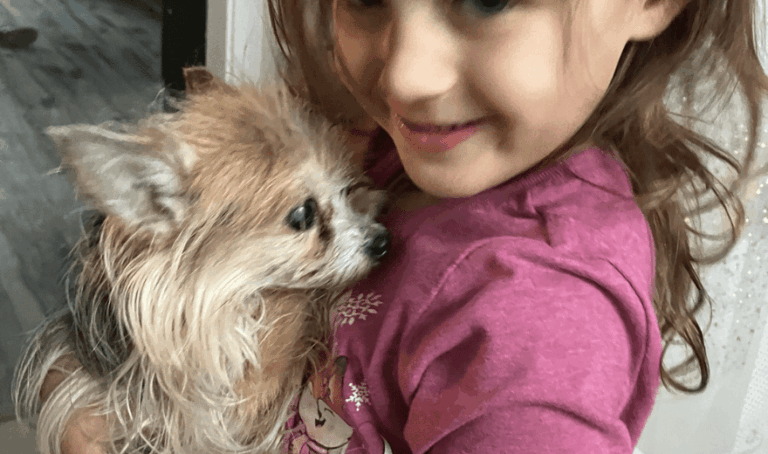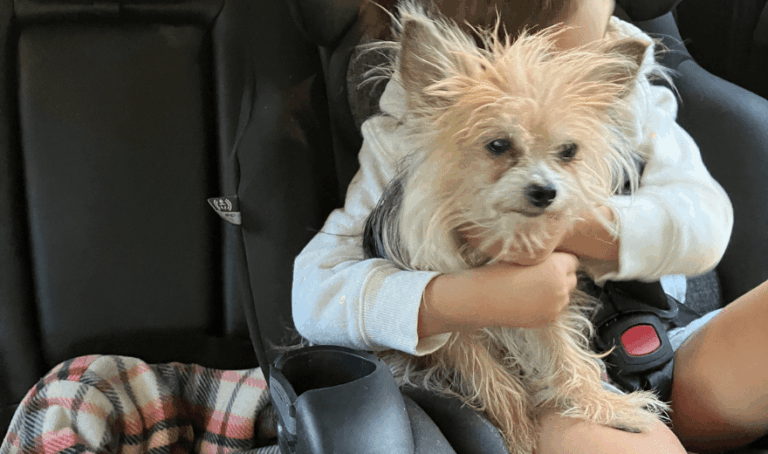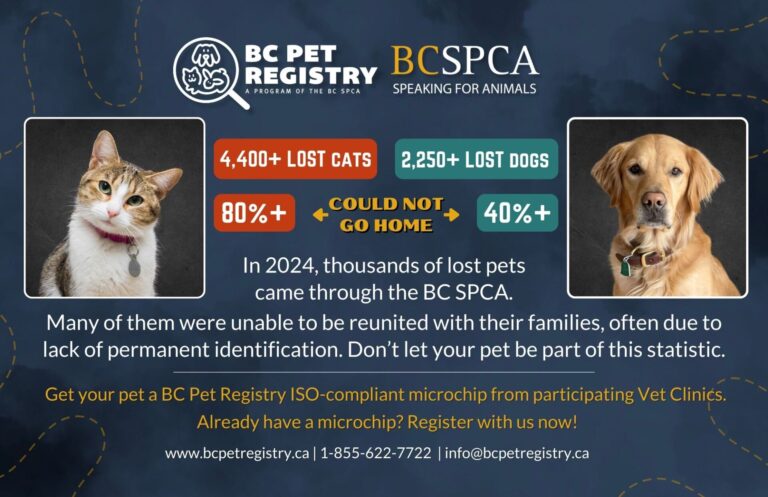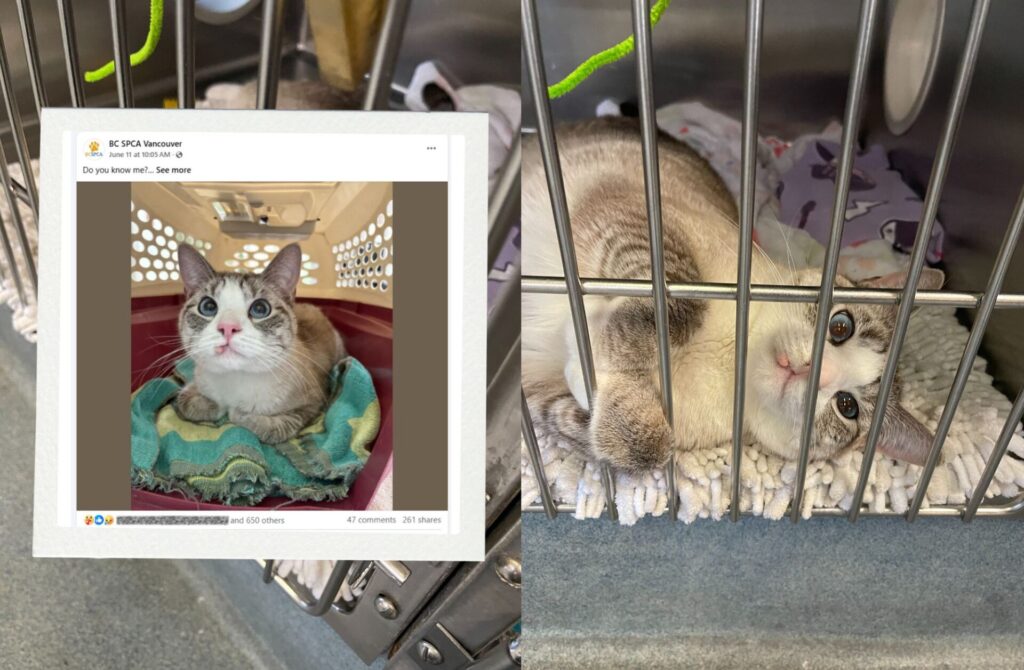Table of Contents
Coco’s Disappearance

April first discovered five-pound Coco at a BC SPCA shelter and felt an instant bond that made adoption inevitable. A decade later, on what began as an ordinary afternoon, she left the now–senior Yorkie with a friend for a short twenty-minute errand. The friend’s yard bordered a four-lane road and a swift river. When April returned, the yard was silent, the gate latch hung open, and the tiny, partially blind dog with fading hearing had vanished. An icy wave of dread washed over her as she imagined every possible danger.
The Search
Without pausing, April plunged into a frantic search. She peered under hedges, combed the riverbank, and paced the busy street while traffic roared past. Hours slipped by in a blur of tears and rising panic. Exhaustion set in, but she pressed on until the realization hit that she needed broader help. Only then did she start phoning every nearby shelter in the hope that someone had taken Coco in.
A Stranger Stops Traffic
One shelter, roughly ten kilometres away, reported that a teacup Yorkie had recently been brought through its doors. April grabbed adoption papers, puppy photos, and Coco’s worn collar, then raced across the quiet night streets. At the shelter she learned what had happened: a long-haul truck driver had spotted a small dog wandering in roadside brush, halted his rig across two lanes to stop traffic, scooped the Yorkie up, and transported her directly to safety.
Proof Positive: The Reunion

Shelter staff scanned the dog and located a microchip; a faded ear tattoo carried the same ID. Both identifiers traced instantly to April’s up-to-date BC Pet Registry record. After paperwork and photographs confirmed ownership, a volunteer opened the kennel door. Coco bounded forward, tail whirling, and leapt into April’s arms. In less than twenty-four hours the tiny Yorkie had crossed highways, skirted predators, and endured a night alone, yet one good Samaritan, a reliable chip, and accurate registry details delivered a joyful homecoming.
Why Coco’s Story Matters
Lesson learned | Takeaway for guardians |
Lost pets disappear fast | Coco vanished during a routine errand. Always secure gates and be clear with pet-sitters about escape risks. |
Registration makes a chip work | Shelters found April because both the chip and tattoo linked to current contact details in the pet registry. |
Strangers can only do so much | The trucker rescued Coco, but the registry closed the loop. Keep your pet’s profile current so helpers can reach you. |
Curious how a scanner turns a chip number into a phone call? See How Microchipping Works.
Community Impact: Kelowna Microchip Clinic

On 23 June 2025 BC SPCA Kelowna and City Centre Veterinary Clinic hosted a two-hour microchip clinic. Twelve pets visited, six cats and six dogs. Two already had chips, so volunteers helped guardians connect those numbers to their BC Pet Registry accounts. The remaining ten pets—five cats and five dogs—received new ISO-compatible microchips and lifetime IDs.
Veterinarians Dr. Kim Crisanti and Dr. David Seefeldt, with technicians Allison Jones and Danielle Valentino, donated their expertise. “Every chip we place is a reunion waiting to happen,” Dr. Crisanti says. Carlee, an animal-care attendant, added, “The team was so attentive and kind. Spoiling the animals after treatment felt great.” Mary Whittaker, Kelowna’s Animal Care Supervisor, noted, “Every conversation, every microchip, and every form handed out helps us build a stronger pet community.”
Upcoming Events
- 20 July 2025 – BC SPCA Vancouver Microchip Clinic, free microchip and lifetime registration, donations welcome.
- 10 August 2025 – Delta Community Animal Expo, free microchip scans.
- 24 August 2025 – Pet-A-Palooza Yaletown, Vancouver, free microchip scans.
Missed Kelowna? Follow the full clinic story and future dates for more ways to connect.
Be a Part of the 80% Responsible Owners
During our recent events, we scanned hundreds of pets, all with microchips implanted. Only to discover that approximately 20% of the pets’ microchips are not linked to any registries in North America. We recommend all pet owners to double check their pet’s registration and directly registering with us. All you need is the microchip number and/or tattoo code to start the online registration process. For a small, one-time fee of $45, your pet will be protected for a lifetime and you will also have contributed to the life-saving work of the BC SPCA.
Conclusion
Coco faced speeding cars, dark water, and night predators yet came home because her microchip carried April’s phone number and because a stranger cared enough to act. Kelowna’s clinic shows how community events expand that safety net to countless other pets. You cannot predict every detour your companion may take, but you can give them the same ticket home. Register or update your pet’s microchip today at BC Pet Registry, add a backup contact, and upload a recent photo. One tiny chip and a simple database entry can make all the difference when minutes matter.
FAQ
Q: How can I confirm my pet’s microchip is still registered to me?
Log in to your BC Pet Registry account and check the Owner Status line next to your pet’s name. If you cannot access your profile, please email us at info@bcpetregistry.ca. Our team will verify details and email you a secure reset link.
Q: Can a microchip fail or move inside the body?
Microchips are sealed in biocompatible glass and rarely malfunction. Also, scanners cover a broad area between the shoulders. Ask your veterinarian to scan your pet during annual check-ups.
Q: My pet wears a GPS collar; why add a microchip?
GPS batteries can die, Bluetooth trackers can fall off, and subscriptions can lapse. A microchip is permanent, network-free, and costs nothing extra after registration.
Q: Is lifetime registration really forty-five dollars?
Yes. One payment covers unlimited updates for life.Unlike other registries, there is no extra cost to make updates to your contact information or your pet’s details, including medical records as well as transfer of ownership.
Q: What if my pet was chipped overseas?
Enter the microchip number in your pet’s BCPR profile. Our database links to international lookup systems so shelters worldwide can trace you.
Q: I found a stray animal tonight; what should I do first?
Bring the animal to any vet clinic or shelter for a free microchip scan, and they will be able to assist with the reunion process.



